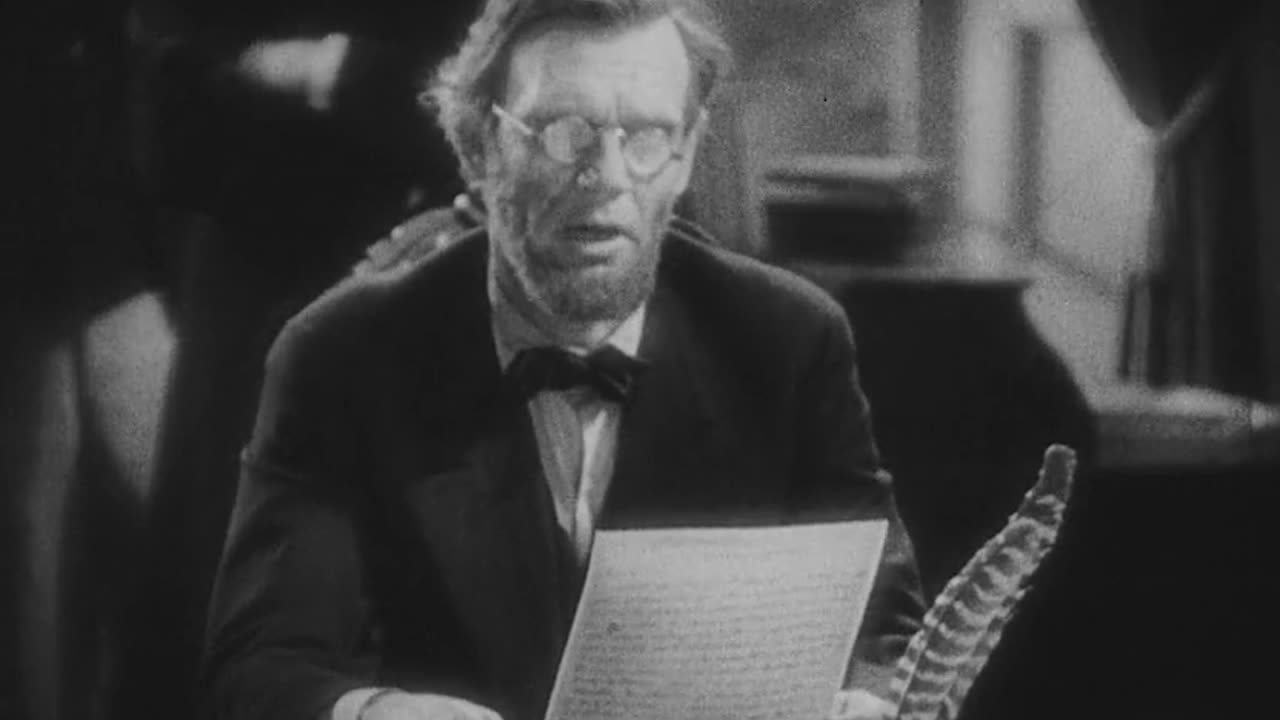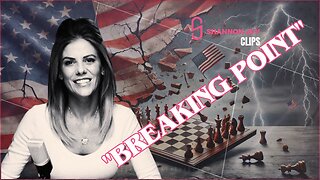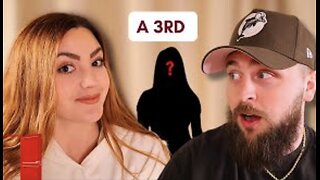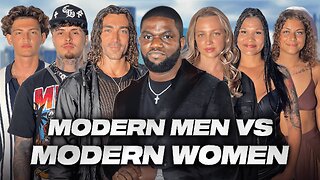Premium Only Content

Abraham Lincoln (1930)
1930 - Public Domain
Abraham Lincoln (1930 film)
From Wikipedia, the free encyclopedia
https://en.wikipedia.org/wiki/Abraham_Lincoln_(1930_film)
Abraham Lincoln
Directed by D. W. Griffith
Written by Stephen Vincent Benét
(adapted for the screen)
John W. Considine Jr.
(story and production adviser)
Stephen Vincent Benét and Gerrit Lloyd
(continuity and dialogue)
Produced by D. W. Griffith
Joseph M. Schenck
Starring Walter Huston
Una Merkel
Cinematography Karl Struss
Edited by James Smith
Hal C. Kern
(editorial adviser)
Music by Hugo Riesenfeld
(music arrangements)
Production
company
United Artists
Distributed by United Artists
Release date August 25, 1930
Running time 94 minutes
Country United States
Language English
1:33:40
PLAY full film; runtime 01:33:35
Abraham Lincoln, also released under the title D. W. Griffith's "Abraham Lincoln", is a 1930 pre-Code American biographical film about Abraham Lincoln directed by D. W. Griffith. It stars Walter Huston as Lincoln and Una Merkel, in her second speaking role, as Ann Rutledge. The script was co-written by Stephen Vincent Benét, author of the Civil War prose poem John Brown's Body (1928), and Gerrit Lloyd. This was the first of only two sound films made by Griffith.
The film entered the public domain in 1958 when the initial copyright expired. The copyright holders did not elect to extend it for a second 28-year term.[1][2]
Synopsis
The first act of the film covers Lincoln's early life as a storekeeper and rail-splitter in New Salem and his early romance with Ann Rutledge, and his early years as a lawyer and his courtship and marriage to Mary Todd in Springfield, Illinois. The majority of the film deals with Lincoln's presidency during the American Civil War and culminates with Lee's surrender and Lincoln's assassination at Ford's Theatre.
Cast
Characters in the order of their appearance:
W. L. Thorne as Tom Lincoln
Lucille La Verne as Mid-Wife
Helen Freeman as Nancy Hanks Lincoln
Otto Hoffman as Offut
Walter Huston as Abraham Lincoln
Edgar Deering as Armstrong
Una Merkel as Ann Rutledge
Russell Simpson as Lincoln's Employer
Charles Crockett as Sheriff
Kay Hammond as Mary Todd Lincoln
Helen Ware as Mrs. Edwards
E. Alyn Warren as Stephen A. Douglas
Jason Robards as Herndon
Gordon Thorpe as Tad Lincoln
Ian Keith as John Wilkes Booth
Cameron Prudhomme as John Hay (secretary to the president)
James Bradbury, Sr. as General Scott
Jimmie Eagle as Young Soldier
E. Alyn Warren as General Grant
Oscar Apfel as Secretary of War Stanton
Frank Campeau as General Sheridan
Hobart Bosworth as General Lee
Henry B. Walthall as Colonel Marshall
Reception
The film received positive reviews from contemporary critics. Mordaunt Hall of The New York Times called it "quite a worthy pictorial offering with a genuinely fine and inspiring performance by Walter Huston in the role of the martyred President"[3] and later put it on his year-end list of the ten best films of 1930.[4]
"More than an outstanding classic of sound pictures, Abraham Lincoln eclipses the most conservative illusion of a modernized Birth of a Nation", wrote Variety in a rave review. "It is a startlingly superlative accomplishment; one rejuvenating a greatest Griffith. In characterization and detail perfection it is such as to be almost unbelievable."[5] Film Daily called it a "distinguished and human narrative" and wrote that Huston's performance "may be listed as one of the 10 best of the year – or any talker year."[6]
John Mosher of The New Yorker wrote that it was "by and large.....a pretty high-grade picture."[7] Despite these accolades, however, the film's box office performance was uneven.[8]
Historical accuracy
The film covers some little-known aspects of Lincoln's early life, such as his romance with Ann Rutledge, his depression and feared suicidal tendencies after her death, and his unexplained ending of his engagement with Mary Todd. However, the film surmises that the cause was because of his unresolved feelings over Ann Rutledge, and it adds a dramatic scene in which Lincoln stands Mary up on their scheduled wedding day. In reality, Lincoln ended the engagement before the wedding day. He later had regrets about his decision and returned to ask Mary's hand in marriage, and they were married, as happens in the film.
While the early scenes of Lincoln's life are remarkably accurate, many of the later scenes contain historical inaccuracies. The Lincoln-Douglas debates, in addition to the historically accurate topic of the extension of slavery, are turned into an argument about secession. Lincoln was an underdog for the Republican Presidential nomination in 1860, but the film suggests that he was the sole nominee as a result of the Lincoln-Douglas debates.
The outbreak of the Civil War seems to be the Union firing on Charleston, South Carolina from Fort Sumter rather than the other way around. Also, early in hostilities, General Winfield Scott is depicted as being overconfident of a quick victory and something of a buffoon, but in reality, he was one of the voices in the minority claiming the war would be long, costly, and bloody.
In the film, Lincoln receives a report from the Secret Service that some Copperheads in the North have issued threats against him. However, in reality, the Secret Service was not created until two months after Lincoln's death.
Finally, in the film's climax, Lincoln delivers a conflation of the words of the Gettysburg Address and Second Inaugural Address at Ford's Theatre on April 14, 1865, moments before his assassination. This movie was Griffith's second portrayal of Lincoln's assassination, and the first was in The Birth of a Nation.
Preservation status
Abraham Lincoln is part of the David Wark Griffith collection at the Museum of Modern Art, and it was donated as a gift from screenwriter-producer Paul Killiam, a collector of silent movies. Funding for the preservation of this film was provided by The Lillian Gish Trust for Film Preservation, The Film Foundation, and the Hollywood Foreign Press Association.[9]
Legacy
More recent assessments of Abraham Lincoln have been less effusive in their praise of the film, finding that Abraham Lincoln has not aged well. In 1978, the film was included as one of the choices in the book The Fifty Worst Films of All Time, criticizing the film's historical inaccuracies, instances of clumsy dialogue and Merkel's melodramatic acting style.[10] Glenn Erickson, reviewing the DVD in 2012, wrote that it "comes off as an interesting curio. Its earnest simplicity seems more dated than ever, despite the fine performance of Walter Huston in the lead role."[11]
Film historian Melvyn Stokes found that Abraham Lincoln's episodic structure "came at the cost of dramatic tension" and suggested that the film's disappointing box-office performance was due to its having "nothing of major importance and relevance to say about its subject to moviegoers of Depression-era America."[12] Abraham Lincoln was the first sound film about the Civil War which veterans of that war could view.
https://en.wikipedia.org/wiki/List_of_films_in_the_public_domain_in_the_United_States
-
 7:39
7:39
The Shannon Joy Show
11 hours ago🇺🇸 America's Breaking Point: Are We Ready to Toss the Board? 🎯
596 -
 10:00
10:00
Adam Does Movies
15 hours agoCEO Claims Netflix Saved Hollywood. Um, WHAT?!?! - Rant
138 -
 1:00:43
1:00:43
Trumpet Daily
16 hours ago $3.66 earnedThat Big, Beautiful Wall Around the Vatican - Trumpet Daily | Apr. 28, 2025
2.41K12 -
 12:40
12:40
Degenerate Jay
9 hours agoThe Perfect RoboCop Versus Terminator Game Needs To Be Made!
1182 -
 8:17
8:17
VSOGunChannel
13 hours ago $0.07 earnedYou Were Put on a Government Watch List || DECLASSIFIED
1792 -
 35:14
35:14
Steph & Kayls
14 hours agoSpicing Things Up: How To Navigate Adding A Third To The Bedroom | Ep. 4
11 -
 28:59
28:59
Film Threat
10 hours agoTHUNDERBOLTS* EARLY REACTIONS | Film Threat After Dark
7.97K3 -
 8:02:12
8:02:12
Rebel News
4 days ago $208.12 earnedELECTION NIGHT LIVE: Rebel News Canada coverage with Ezra Levant, Sheila Gunn Reid & Special Guests
411K227 -
 1:24:54
1:24:54
Badlands Media
13 hours agoBaseless Conspiracies Ep. 130: Iberia Blackout, Green Energy Failures, and Grave-Robbing Government Experiments
74.7K28 -
 2:12:50
2:12:50
FreshandFit
6 hours agoModern Men VS Modern Women
42.6K32